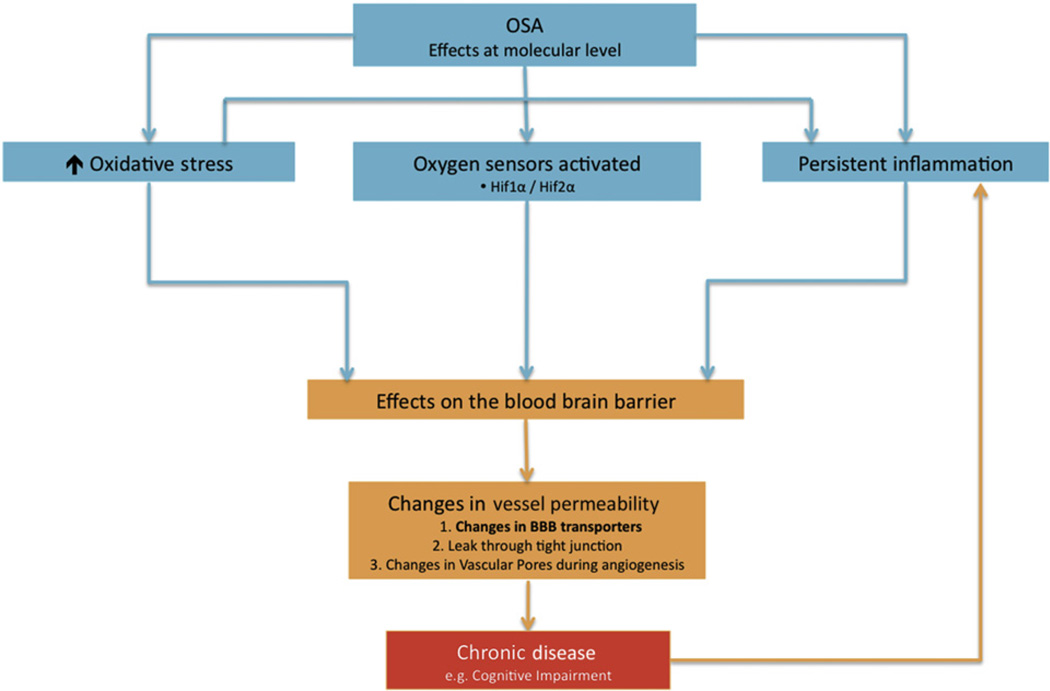Fig. 1.
Intermittent hypoxia generates increased oxidative stress, can activate molecular oxygen sensors, and induce a chronic inflammatory state at the blood–brain barrier. In OSA patients that are susceptible (e.g., genetic polymorphisms and co-morbidities/epigenetics) this can lead to further effects on the blood–brain barrier, specifically, alterations in microvessel permeability.

